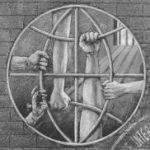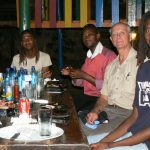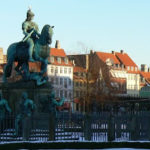By Richard Ammon
GlobalGayz.com
November 2017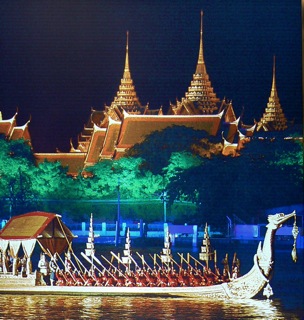
Fantasy Life
As I wrote this story, Thailand was glued to a royal funeral ceremony via millions of TVs, radios and live in central Bangkok. For eight hours, since 0700 on a Saturday in November 2017, monks and ancient horns filled the solemn air with prayers and chants as the two-kilometer-long regal procession has bore the ornate golden chariot carrying the body of King Bhumibol Adulyadej to the cremation site in Luang Prabang park adjacent to the glittering Grand Palace. He reigned since 9 June 1946 becoming, at his death, the world’s longest-reigning head of state reigning for over 70 years.
The entire royal family and attendants as well as the top political leaders, military brass and hundreds of thousands of common citizens patiently waited out the long slow Buddhist rituals and state ceremonies required to bid farewell to the beloved Royal.
The streets downtown had been scrubbed clean and potted flowers by the tens of thousands lined the way to the great golden funereal shrine in Luang Prabang park that was elaborately constructed for the ceremony where the king was cremated. The image at dusk resembled a fantasyland setting of shimmering jewels as the temple was lit up with lights; it seemed like a trip back to an ancient time of wonder and kingly awe.
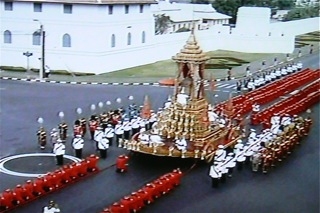 Ministers and officials bowed deeply and prostrated before the new King (his son, Maha Vajiralongkorn Bodindradebayavarangkun ) and his family. It was a sad event for many as the old king symbolized a passing generation that will not come again.
Ministers and officials bowed deeply and prostrated before the new King (his son, Maha Vajiralongkorn Bodindradebayavarangkun ) and his family. It was a sad event for many as the old king symbolized a passing generation that will not come again.
It was a true extravaganza procession with gilded carriages pulled or carried by thousands of sweaty costumed soldiers. (photo left) The four-day blow-out ceremony, at the full moon, costing US$9M, probably the most elaborate regal ceremony since Genghis Khan in the 13th century and was attended by a million of natives, mostly dressed in black.
Meanwhile…
As with any major city, Gay Thailand is not a singular homogenous block of people. It consists of very diverse smaller communities of native gay men, lesbian women, bisexuals, transgender ladyboys, political activists, retired farang (foreign) residents and business people, pleasure-seeking tourists, culture-seeking visitors on a tour, and even a group of long-term gay friends from New York City, in Bangkok for a luxury week to celebrate the 30th anniversary of one couple.
The following portrait of gay love and life in Thailand is divided into four parts:
(1) Real Life: Expats and Their Thai Partners
(2) A Separate Gay Reality: Gay Thais for Gay Thais
(3) A Public Thai Face of Thai Gay: Gay Rights Activism
(4) A Third Gender: Ladyboys in Thailand
(1) Real Life: Expats and Their Thai Partners
Beyond the insular world of blue-blood ceremonies, Bangkok continues its buzz of business for 11 million people with hardly a letup for the drama of monarchs, politics, finance, or free enterprise. The new airport is awesomely enormous and sculptural, the Skytrain glides among tall buildings (photo right), street vendors deep fry fritters, veggies and du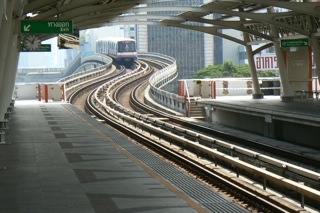 ck; the night markets bristle with endless merchandise and the spicy sex trades continue unimpeded (and over-exaggerated).
ck; the night markets bristle with endless merchandise and the spicy sex trades continue unimpeded (and over-exaggerated).
But, this year the gay community witheld its gay pride parade for various reasons, mostly personal and financial–but possibly in deference to the far more elaborate parade sponsored by the King and real Queen.
Expat Farangs: Conrad and Michael
Expat lovers Conrad and Michael are retired Americans who have been here for years living comfortably in a rented apartment near St Louis Hospital on trendy Sathorn Road. “This is a city where everything is happening now, all the time; it’s never boring. It is both exotic and comfortable—and it’s far away from the States and it’s pathetic politics,” said Conrad.
Like many Americans who choose to live abroad, they are glad to be separate from the American political fiascos of recent times, glad to be free of a self-indulgent culture that seems devoid of integrity as demonstrated by the sub-prime mortgage debacle; glad to be away from the myopic hysteria that surrounds the materialistic money chase that courses through the blood stream of America.
At the time of my visit Conrad and Michael were hosting another retired couple, Mark and Stephen, from South Beach, Florida. A couple for 33 years Mark and Stephen were on a journey to Thailand, Cambodia and Burma. They were courageous and committed men as they dealt with Mark’s disabling diabetes that had robbed him of both legs. Yet they were here to see the magnificent temples of Pagan in Burma, Angkor Wat and exotic Bangkok with their long time friends in a delayed honeymoon voyage after getting married in Canada earlier in 2008. Later that evening we all went to the famous Calypso Cabaret drag show spectacular at the Asia Hotel (see description below). (For anyone who has been to Bangkok it is not wheelchair friendly which made Mark’s and Stephen’s efforts seem heroic.)
(Bad ‘luck’ is a merciless swipe of fate; for some by disadvantaged birth, others by disease and many by accident as life gets twisted or eliminated in a traumatic moment or silently over years. Mark, a highly respected physician and researcher, died a few months later from complications of his diabetes. See dedication above.)
So too with being gay: a quirk of nature of unknown origin that shifts a life away from majority membership to oblique minority. Yet, says Michael, “I would not have it any other way. Being gay has made my life so adventurous, so different from my siblings and straight friends. Not that they’re not interesting but being gay puts us up against the invisible wall of discrimination all over the world. I’m white and well off financially but these status markers are no protection against homophobia and scurrilous attacks from people who don’t even know me.”
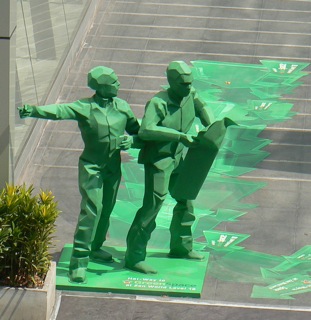 Michael was obviously on to a topic that he feels passionate about: “Being gay has given us a back-door awareness about organized religion (mostly the fundamentalist type) and we see and hear the hatred these religions induce in people about sexuality. So many of their ‘believers’ are terrified of their human urge toward sexual desire. Being gay, for me, has freed me from this irrational grip of fear. I am a sexualized being and I don’t waste effort in questioning or feeling guilty about my desire or behavior.
Michael was obviously on to a topic that he feels passionate about: “Being gay has given us a back-door awareness about organized religion (mostly the fundamentalist type) and we see and hear the hatred these religions induce in people about sexuality. So many of their ‘believers’ are terrified of their human urge toward sexual desire. Being gay, for me, has freed me from this irrational grip of fear. I am a sexualized being and I don’t waste effort in questioning or feeling guilty about my desire or behavior.
“Society changes all the time all over the world but much religious belief is stuck in the distant pas,t as if there is some kind of magic to their very human origins that cannot be challenged. It seems that as civilization and societies have ‘advanced’ (science, technology, intellectual thought) and religions have become more rigid and fearful. I feel sorry for anyone who is religiously damaged about their own feelings that they can’t express themselves honestly… But here in Thailand we don’t have to deal with that at all. Not that homophobia is absent here but it’s not in your face like it is the States—look at the recent California vote to deny gays the right to marry. People actually voted to take away human rights—for religious reasons! Incredible.”
Ben and Pim
Another variant in the broad gay landscape in Bangkok is an Australian businessman executive for a large international department store chain who has lived in Bangkok for eight years, owns his house here and has a Thai partner of similar age. They live miles out of the city center and only come in to town for special events or to meet visitors.
Between international travel and office work, Ben has little time for anything else, so his evenings with Pim are kept quiet and private. “We are almost not a gay couple,” laughed Ben. “We don’t do anything you could call ‘gay’ because of my work schedule and Pim’s family affairs where he is involved with his parents and sometimes stays away for days. Or, if he wants to see his nephews and nieces he will go to his siblings for a weekend. Thai families like to see lot of one another. And of course Pim is busy with his own work as an accountant. So who has time for anything else?!”
There is not much else to say about this couple, from the outside. But missing in this description is the significant fact that Pim, now in his late 30’s, has never told his family he is gay. They have met Ben on occasion as a ‘friend’ and have always been courteous to him.
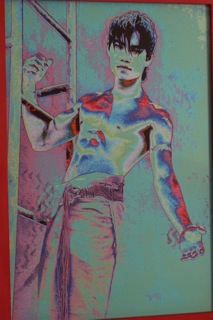 What prevents Pim from disclosing his truth is a ‘force’ of culture that grips every Thai person, the force of tradition, restraint and discretion. Not to mention family honor. Pim, after eight years with Ben, still cannot bring himself to cross those cultural boundaries of obedience and loyalty to his family and tell them Ben is his ‘intimate other’.
What prevents Pim from disclosing his truth is a ‘force’ of culture that grips every Thai person, the force of tradition, restraint and discretion. Not to mention family honor. Pim, after eight years with Ben, still cannot bring himself to cross those cultural boundaries of obedience and loyalty to his family and tell them Ben is his ‘intimate other’.
Fortunately Ben’s and Pim’s professional and geographic arrangements allow for such covert yet comfortable living. They do not live near Pim’s family; both have time-consuming jobs with Ben traveling regularly out of the country for corporate matters. As for Ben’s family in the USA, he came out to them many years ago and it is no longer a lively issue. He had a previous long-term relationship that drifted apart when Ben accepted an offer from his company to live in Asia. His partner did not like heat or humidity so he stayed behind.
Cary, Oud and Don in Pattaya—a Threesome
Two hours further south of Bangkok in the city of Pattaya there is another ‘spice trade’ along the neon-lit night streets of Boyztown where countless numbers of gay and straight customers pursue a night of carousing and oogling at the young Thai dancers with numbers attached to their bikinis. One gay bar even has a large aquarium where go-go boys perform an underwater ballet of sorts.
But this is hardly an accurate portrait of gay life in the Pattaya area. The scene extends from the low-wage earning pizza delivery boy who lives with three other friends in a rented room to the penthouse of a high-rise condo tower on the 3-mile-long Jomtien beach just south of Pattaya.
Here, for eight years, Oud, Don and Cary have been a threesome ‘couple’ with well-balanced mutual feelings for one another. At lunch one day at Sea Falcon restaurant along the beach promenade the trio mused about their relationship. Don and Cary are retired Brits, expat restauranteurs from London. Oud is native Thai businessman in his young 40’s.
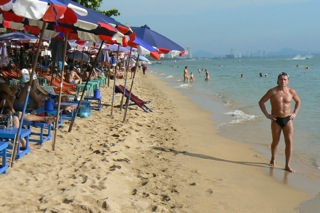 “We met on the beach here when Oud came walking by and we were caught by his eye,” explained Don. “We were just sitting on our lounge chairs and he came up to us and wanted to chat, but we were cool and not welcoming. To us he seemed just another money boy who wanted cheap talk followed by a seduction followed by money.” Oud added, “yes, I know they thought this but I really wanted to meet them, so I invited them out to lunch and said I would pay. I wanted to change their idea of me.”
“We met on the beach here when Oud came walking by and we were caught by his eye,” explained Don. “We were just sitting on our lounge chairs and he came up to us and wanted to chat, but we were cool and not welcoming. To us he seemed just another money boy who wanted cheap talk followed by a seduction followed by money.” Oud added, “yes, I know they thought this but I really wanted to meet them, so I invited them out to lunch and said I would pay. I wanted to change their idea of me.”
This unusual tactic surprised Don and Cary. A Thai boy paying for two farangs? They had never heard such a thing; it’s always the other way round, so it took some persuasion to get Don and Cary to agree. They declined twice before they understood that Oud was serious—and, as they have learned over the years, very persistent. So they had their lunch and realized Oud was far from a money boy.
“The thing that impressed us, aside from his good looks, was that he was a successful businessman here in Pattaya. And it has been a key factor in our relationship together. We would not ‘keep’ a younger Thai man. It’s something we never considered. But Oud is not at all a subordinate in this relationship.
He is prosperous and educated in his own right and this makes our love equal as well. Beyond that of course is his particular personality and manner and attitude and honesty that we love. The physical thing is lovely of course but it’s beyond just that. He is a wonderful person.” (photo left: Doa and Cary)
As Don talked, Oud gently put his hand out and lightly touched Don’s forearm as if to verify the truth of his words. A while later, Cary remarked, in a playful aside to me, that Oud was ‘marking his territory’ by touching Don in front of me and demonstrating silently the mutual feelings he had toward his ‘husband’.
Unusual Survival
Cary mentioned yet another variant on the Farang-Thai gay theme as we finished lunch under gently s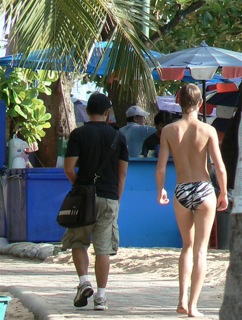 waying palms. Among Thais who are attracted to foreign men (both gay and straight), a common occurrence arises when passion goes beyond carnal sex and the two people want to continue their connection. Sometimes the foreigner agrees to support fully or partially the Thai partner from afar, sending money for rent, school and expenditures (which often includes his family).
waying palms. Among Thais who are attracted to foreign men (both gay and straight), a common occurrence arises when passion goes beyond carnal sex and the two people want to continue their connection. Sometimes the foreigner agrees to support fully or partially the Thai partner from afar, sending money for rent, school and expenditures (which often includes his family).
This has worked to a greater or lesser degree for countless couples over the years. But Don added that some Thai guys have multiple boyfriends who usually don’t know about one another, which provides more than one income source. “One guy we know has four boyfriends! How he juggles these guys I can’t imagine since he can’t really schedule their visits. Perhaps if more than one arrives at the same time he goes off to see his parents,” laughed Cary.
Wider Context
Such relationships are unusual but not unheard of among gay Thais. Although they seem exploitive and deceptive, the arrangement must be seen in a broader context of (1) survival and (2) sexuality. Survival often means not just for oneself but also taking care of one’s family.
(1) In Bangkok (or other major cities with a gay scene—Pattaya, Phuket, Chaing Mai) many young men come from the rural countryside—especially the large northeast province of Isan–where families are mostly farmers, laborers or small factory workers, i.e. low wage earners. (This is also true of young heterosexual female workers, whether in the sex trade or in other commerce.) The family–grandparents, parents and adolescent siblings, cousins–work long manual hours to eek out a living, which is keenly felt by the unmarried gay son. 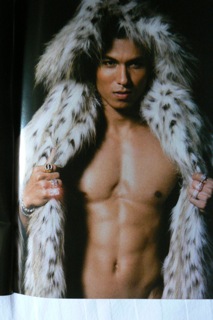
One native man, looking for a hook-up, told me, “my mother works all day in a little shop wrapping dried fish packets for very little money. I want her to stop working. She is old, tired and sometimes sick. So I do Bangkok work to help her…” (A year after I met this sexual entrepreneur he had found himself a Norwegian ‘husband’ who legally married him. Now they live in Oslo where he works and sends his mom money regularly so she can stay at home where she can help take care of the grandchildren.
This is a theme told countless times in Thailand—and all over Asia—of the great disparity of wealth in emerging economies which, in the past sixty years, has been shifting away from subsistence farming with modest export profit to high-profit free-enterprise commerce and technology. Jobs range from bored clerks in department stores to fast-paced fast-food servers to responsible bank clerks to educated programmers and teachers, on up to entrepreneurs like Oud and company managers with their own car and driver. Bangkok has room for the upwardly mobile playing the profit game. The potential for life here for a gay man or woman is literally a world away from the emotional remoteness of rice paddies and oxen.
A Certain Mindset
(2) As for the sexuality issue: “I think people (I can only speak for men) who retire here must have a open mind about many things such as cultural differences and that includes sex and relationships,” said Cary in Jomtien. He was responding to a question I asked, based on my perception of several gay (foreign and native) couples in Thailand that monogamy not seem as rigidly held as in the West; couples appear freer to customize their relationships in a way that aligns inner desires with their intellectual values or fantasies.
The variety of couple arrangements include casual one-on-one outside sexual contacts, third person hook-ups (3-ways), mutual trips to a sauna (both partners enter together then separate), simultaneous multiple lovers as well as traditional monogamous commitments.
Some suggest this open mindset, for Thai men, derives in part from an old tradition of married men having a ‘second wife’, a mistress who was known but not acknowledged by the first wife. As long as a man could support more than one family, he could do it with little social scorn. So why, we might ask, would gays be any different?
“To handle this sort of alternative behavior you have to come to grips with the monster of jealousy. You can’t be jealous if you and your lover are going to be sexually playful with others,” continued Cary, “and some people just can’t manage that. That’s the big issue, isn’t it?; it’s the dividing line between monogamous couples and more free-spirited ones. I suppose it also has to do with your feelings of security and whether it’s something derived from within yourself or from the behavior of another person.”
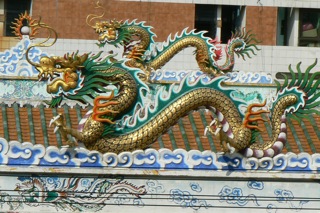 Of course this tiny sample does not generalize across to the larger Thai culture, gay or straight. Indeed, as Colin acknowledged, “to be sure, I have known quite a few Thai men to be extremely jealous if their boyfriend looks at someone else.” Nevertheless, I do think these variant couples—mostly bi-cultural (farangs and natives)–are not unusual in Thailand because of the soft Buddhist attitude toward variant human behavior as well as the silence Thai people bring to personal sexuality.
Of course this tiny sample does not generalize across to the larger Thai culture, gay or straight. Indeed, as Colin acknowledged, “to be sure, I have known quite a few Thai men to be extremely jealous if their boyfriend looks at someone else.” Nevertheless, I do think these variant couples—mostly bi-cultural (farangs and natives)–are not unusual in Thailand because of the soft Buddhist attitude toward variant human behavior as well as the silence Thai people bring to personal sexuality.
So the combination of survival needs and soft sex attitudes combined with farang liberal attitudes lay the groundwork for these kinds of ‘alternative’ relationships. Said Don, “we never dreamed we would find such happiness in our retirement–especially with a third person.. Oud has made our lives so much fuller and more exciting than we thought possible. At all levels. Colin and I still have to pinch ourselves to make sure after nearly eight years of living in Thailand we have never been so happy and are completely in love with this wonderful young man! We continue to find facets about him that make him very special.
“Not the least of which, beyond our feelings, is the significant fact, as mentioned before, that he is a successful businessman with some of the best gay facilities in southern Thailand. So we are very much peers financially and professionally. This makes the relationship very equal and we engage with him at that level since his business affairs overlap with our own experience.”
(2) A Separate Gay Reality: Gay Thais for Gay Thais
According to one native source (Spice magazine) the popular Bangkok and Pattaya expat scene in Thailand makes up only a small percentage of the Bangkok LGBT scene. A separate and majority reality is lived by gay Thais who rarely go near the notorious ‘scene’. In the living room of a luxury condominium overlooking the Chao Praya River, I met a well-to-do Thai couple whose upper class families were aware of their gay relationship but not openly acknowledging of it. “Thais have a way of seeing and not seeing at the same time,” said one partner. This allows face-saving admission without confession about an awkward or embarrassing circumstance in any situation, at home, in public or in business.
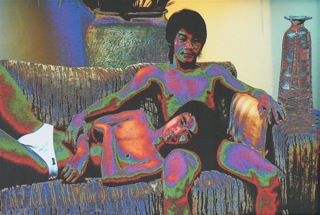 So these two men lived together but usually did not go to one another’s family activities except where a public event called for a certain amount of polite but diplomatic distance. Because of their status, their relationship was surrounded by more chill than might occur in a lower class family.
So these two men lived together but usually did not go to one another’s family activities except where a public event called for a certain amount of polite but diplomatic distance. Because of their status, their relationship was surrounded by more chill than might occur in a lower class family.
Reputation and gossip have much more impact in the higher social levels as families seek to be respected and admired for their rank or achievement. Socializing among other gay Thais is often done in a discrete manner such as an at-home dinner party at home or in private dining room at a chic restaurant.
But they might also go out to a public bar or club on occasion, but not to Silom or Pattaya. A major non-expat scene is focused in the Ramkhamhaeng or Lamsalee district of Bangkok (Ramkhamhaeng Road, soi 89/2), about a 45 minute taxi ride away from downtown. “It is probably the busiest gay area in Thailand. It draws hundreds of university students, working professionals and other that just like a good time…it is probably 98% Thai but the occasional farang is welcome. Here young Thais can be themselves without having to worry about the ‘stigma’ of being seen as a ‘money boys’ to a foreigner’s eye, or indeed to a local’s eye.”
Two other Thai gay neighborhoods are Kamphaeng Pet Road or Oa Tor Kor, which is also popular with students and middle class working people. Then there is the Saphan Kwai or Pradiphat area which has a big draw because of its karaoke pubs and a couple of saunas.
“This is where Thais go looking for other Thais to spend an evening in singing karaoke, drinking or pleasure. One regular to this area told me, ”keep in mind that these areas are very much the ‘Thai scene’, with different culture and rules than what you find in Silom. This is mainly a Thai-for-Thai social scene that is usually devoid of sex-as-commerce and lacks the awkward atmosphere of exploitation and its overtones of inequality.”
(3) A Public Thai Face of Thai Gay: Gay Rights Activism
Stepping out from the velvet closet into the public forum, an organization called Thailand Queer Network recently invited the public—gay and straight– to join the celebration of Thailand’s first National Human Rights Day for Sexual Diversity. Boldly, the event was held in November 2008 at one of Bangkok’s most popular and visible shopping malls, Siam Square, at the large Lido cinema,
The all-Thai theme (in Thai language only) was ‘Towards a Clear Sky’ that included colorful stage performances to celebrate sexual diversity; lively discussions about the law as it applies to transgenders, same-sex marriage and LGBTI youth; a talk show hosted by Day Freeman; a seminar on LGBTI rights in Thailand; and the screenings of award-winning Thai Queer Short Films.
The full-day event culminated in a Rainbow Umbrella March, from Lido cinema to the Bangkok Art and Cultural Center (Rainbow umbrellas were provided.)
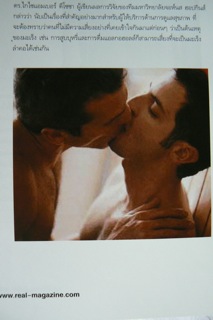 The program for the Human Rights Day events included a variety of rights issues presented by activists and representatives of Thailand’s LGBT spectrum.
The program for the Human Rights Day events included a variety of rights issues presented by activists and representatives of Thailand’s LGBT spectrum.
It should be noted with much respect and admiration that such a program could not have been mounted publicly anywhere else in southeast Asia, except perhaps the Philippines. Repressive as some prime ministers and police chiefs in Bangkok have been in recent years, gay rights advocates have continued to push forward with pride and courage to be able to express gay rights in such a very public manner.
The very full day of action included the following:
A grafitti mural wall titled “Hundreds of Good Things about Being Queer” where participants wrote their own testimonials; a performance by dramatist/director Wannasak Sirilar; an opening ceremony with Khun Kamolset Kenggarnrua from the Rainbow Sky Association of Thailand giving a report on the event including its background and objectives on behalf of the organizing committee.
The opening speech given Jon Ungphakorn followed by Dr Seri Wongmontha’s remarks on LGBTI rights in the
Thai media. Prof Vitit Muntarbhorn’s remark on the UN-approved Yogyakarta Principles of Human Rights which include equal recognition of LGBT rights world wide followed by Khun Alisa Phanthusak’s remarks on Article 30 of the Thai Constitution.
A discussion about “Titles Law for Me” by members of the transgender community; Rainbow performances by LGBTI youth groups; a discussion “Love of Siam: Towards an Understanding of our children who are LGBTI” by Dr Sukamon Wipaweeponkul (Psychiatrist) and young LGBTI’s; a discussion “Same-Sex Marriage” by members of the gay and lesbian community; a talk Show with Day Freeman discussing “My Life, My Way”; a seminar “LGBTI Rights in Thailand: Past, Present and Future” with Suwannee Harnmusikwattanakoo, Danai Linjongrat and
Niroot Sabua, Director of the Ministry of Social Development and Human Security’s Office of Women and Family Affairs.
There were two screening of award-winning Thai Queer short films ‘Who?’ directed by Chonthicha Tangworamonkol and ‘12A’ a film directed by Noppadol Pantha.
At 4PM the colorful and playful Rainbow Umbrella March took place from Lido cinema to Bangkok Art and Cultural Center, led by Aj. Wiroj Tangwanit. Finally there was a public declaration for LGBTI rights by all participants and group photographs.
(For more information, contact Paisarn at asiantrekker@ yahoo.com and Sitthiphan (Hua) huab2007@gmail.com)
(4) A Third Gender: Ladyboys in Thailand
Another part of the gay world in Thailand belongs to the ‘third gender’, the ladyboys who were born with male anatomy but who have grown into feeling they are female. Most ladyboys dress and live as women (transvestites) but have not undergone (or afforded) sex-reassignment surgery (transsexuals). Thailand is probably the easiest country to self-discover an inner gender that does not fit with outer appearance, most likely due to Buddhist tolerance for human variations.
Recently a story appeared in the Bangkok Post and in London’s Independant newspaper which captures the scene and spirit of this unique lifestyle that is poorly understood by the majority population outside Thailand. Inside the country there is more tolerance for ladyboys. The story is repeated here in its entirety:
21 October 2008
By David McNeill in Bangkok
Thailand’s Ladyboys Are in a Class of Their Own, at Last
Lithe, peach-skinned and demure, Arttasit is the kind of woman who would turn heads on any college campus, except that he is not a woman; not yet. The 21-ye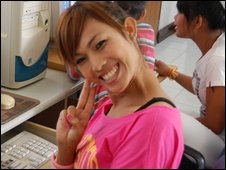 ar-old catering student attends class in Thailand’s Suan Dusit University wearing makeup and a body-hugging female uniform. After four years of hormone treatment, he is preparing for a full sex change. “My goal in life is to become accepted as a woman,” he explains.
ar-old catering student attends class in Thailand’s Suan Dusit University wearing makeup and a body-hugging female uniform. After four years of hormone treatment, he is preparing for a full sex change. “My goal in life is to become accepted as a woman,” he explains.
There are about 100 transgender undergraduates at this college in central Bangkok, which offers the so-called “lady-boys” a unique educational refuge from homophobia and discrimination. Students are allowed to flaunt the campus dress code, which demands men wear trousers. Every year, dozens of the students enter a university beauty contest that has become famous for supplying entrants to Thailand’s Miss Tiffany Universe, an annual pageant for transsexuals broadcast live across the country. Lady-boys work as teachers in some university departments and are even sent out on school recruitment drives.
“I’m happy here,” says Wittaya Jannoi, a 21-year-old marketing student who hopes to change his gender after he leaves. “We can be ourselves because we don’t have to hide. My mother said, ‘Graduate first, then you can do what you want’.” Like many transgender students, he learned about the university through the beauty pageant. “I couldn’t wait to come here.”
Bureaucrats in Thailand’s Ministry of Culture say the Suan Dusit experiment encourages confused youngsters to recklessly experiment. But Pacharee Suankaew, vice-president for student affairs, says: “Our view is that everybody is equal: boy, girl or lady-boy. We try to accept them and not look down on them.”
Also known as “the third sex”, Thailand’s lady-boys have campaigned for years for equal rights and seek, among other things, separate bathrooms and passports that record their unique gender. Despite the discrimination, the country is famed for its acceptance of transsexuals, with a booming sex-change industry that attracts people from across the world.
Transgender students started coming to Suan Dusit about a decade ago, attracted to courses in catering and marketing. The numbers climbed after the start of the beauty contest. Ms Suankaew says they can study everything on offer, except education. “We can’t have them teaching kindergarten children and they accept that.”
In return, she says, the students must be ladylike. “We tell them, ‘If you want to be a woman, act like one’.” Some staff are resisting. “Some professors tell us we are not human beings and we should grow up,” says Arttasit. “They’re usually older women with thick glasses.” (End of newspaper report)
Calypso—Ladyboys in Public
Beyond this unusual liberal University and it’s ladyboy student body are the employment opportunities for third gender folks throughout the city that range from awkward prostitution to beauty parlors to store clerks to the fabulous feathers and lights of Calypso, one of the world’s best drag show performances. The evening I spent at Calypso was a colorful and musical delight.
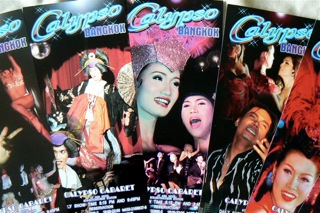 The show happens twice nightly six days a week at the five-star Asia Hotel in the Siam district of central Bangkok. For an intense hour the lights flash, costumes change, legs fly and lip-sync songs are belted out in top quality performances by an all-male cast of more than 50 singers and dancers.
The show happens twice nightly six days a week at the five-star Asia Hotel in the Siam district of central Bangkok. For an intense hour the lights flash, costumes change, legs fly and lip-sync songs are belted out in top quality performances by an all-male cast of more than 50 singers and dancers.
Tight choreography, inventive stage direction, fast-paced lighting, quick-change scenery and efficient backstage organization and fabulous outfits all present a seamless and highly professional entertainment for an international audience that’s bused in from other hotels in the city. It’s an evening of laughter, dazzling lights, beautiful ‘women’ and a lot of fun.
To add to the broad international appeal, some songs are sung in English, others in Thai, Japanese or Chinese, some serious and plaintive love songs while others are bawdy Broadway sounds or comical satires on Asian-style singing.
One reviewer described the show:
A Las Vegas-style ladyboy revue featuring songs such as “All That Jazz,” “I Am Who I Am”, and tributes to geishas and Josephine Baker as well as an entire Thai history fantasia, Calypso combines equal parts camp, couture and cheese, plus no small amount of talent. While the largely hetero, non-Western audience titillates with this theatrical version of hide the sausage, gays will count it as one of the best drag shows around (with a drool-worthy, half-naked cast for both lads and ladies).
http://www.calypsocabaret.com/main.html
In addition to Calypso, there are two other drag cabaret shows in Bangkok, in case you want to compare. Golden Dome Cabaret is located in the Ratchada area. There are three shows daily and feature similar routines of feathers, song and dance.
Mambo Cabaret has the glitz and glamour of Calypso and is equally professional, polished and entertaining. As with the other shows, you will get a chance to take your photo with the performers afterwards (expect to pay for this privilege). The venue is in the former Washington Theater near Sukhumvit Soi 22 and 24. Show times are twice a day.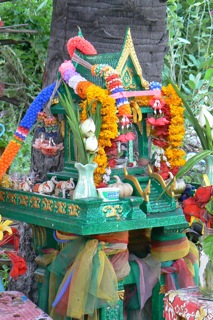
Ladyboys and Good Sons: Gender Identity in Northern Thai Trance Dance
Further insight into the ladyboy world was presented at a Colloquium by Michael Sakamoto of the American UCLA university in Los Angeles (Department of World Arts and Cultures) in 2008. A summary of this seminar is reprinted here:
Lanna (Northern Thai) culture is largely Animist in origin. Belief systems and rituals that go back many centuries and refer to humans’ relationship with and dependence on spirits of the dead are found in various forms throughout the region.
Chief among these is the Chiang Mai region, including the cities and surrounding areas of Chiang Mai, Lamphun, and Lampang.
Each year in the late Spring and early Summer months leading up to the Buddhist Lent, dozens of trance dance ceremonies take place that pay homage to royal, working class, and hero spirits within family, clan, and social lineages.
Like the majority of Thai culture, Lanna mediumship was traditionally a matriarchal practice, dominated by familial and clan females. However, with social strictures loosening in the middle to late 20th-century Thailand, fewer females have chosen to fulfill their traditional roles or, consequently, become mediums as well, opting instead for more modern vocational roles.
Additionally, homosexuality, especially among men, has become somewhat more accepted in mainstream Thai society, opening up their involvement in mediumship. Kathoey, or ladyboys as they are generally referred to in English, are gay males of all ages who typically engage in cross-dressing and transvestism.
The Lanna medium population that participates in annual trance dance ceremonies now contains a high percentage of elderly females and young males, the latter of which are primarily gay. While being gay is never a simple and easy social issue, despite greater social acceptance, mediums also have a tenuous relationship within their roles with the mainstream Thai population, many of whom consider mediumship as at best, mysterious and odd, and at worst, a deviant and false religion.
Being a male and/or gay medium thus represents a nexus of competing social tensions that are simultaneously resolving themselves via the very nature of their masculine and feminine status.
This paper and audio-visual presentation is an examination of this nexus and many of the socio-cultural- historical factors that contribute to it through the social-interactive lens of Lanna trance dance rituals, which are generally loud, day-long spectacles that take place in homes and small gathering areas.
The presentation content is largely based on fieldwork and interviews conducted by the author in Summer 2008 in Northern Thailand.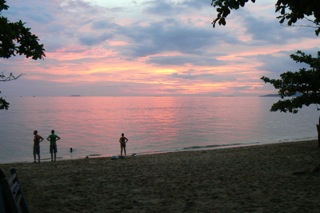
Michael Sakamoto is currently an MFA student in dance in the UCLA Department of World Arts and Cultures.
Contact: Barbara Gaerlan
cseas@international .ucla.edu
www.international. ucla.edu/ cseas/
Sponsors:
Center for Southeast Asian
Studies<http://www.internat ional.ucla. edu/cseas>,
Center for the Study of Women <http://women. ucla.edu/ csw>
This entire posting is in memory of Dr. Mark Beers, doctor, researcher, professor and editor of the Merck Manual, and compassionate friend. It is also dedicated to Mark’s husband Stephen K. Urice who survives him.


